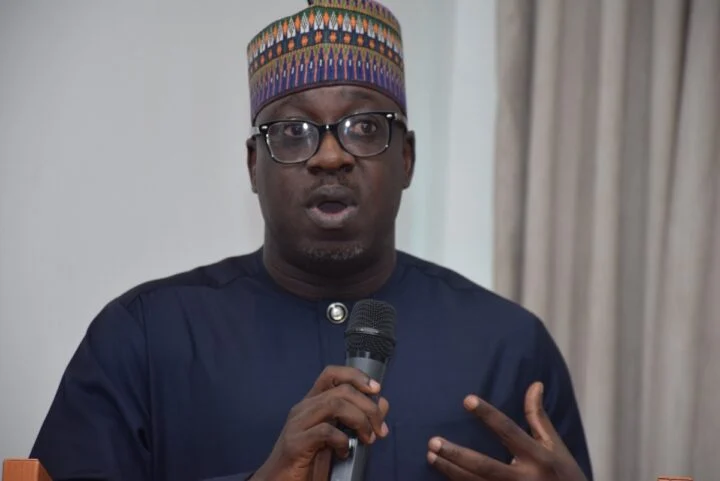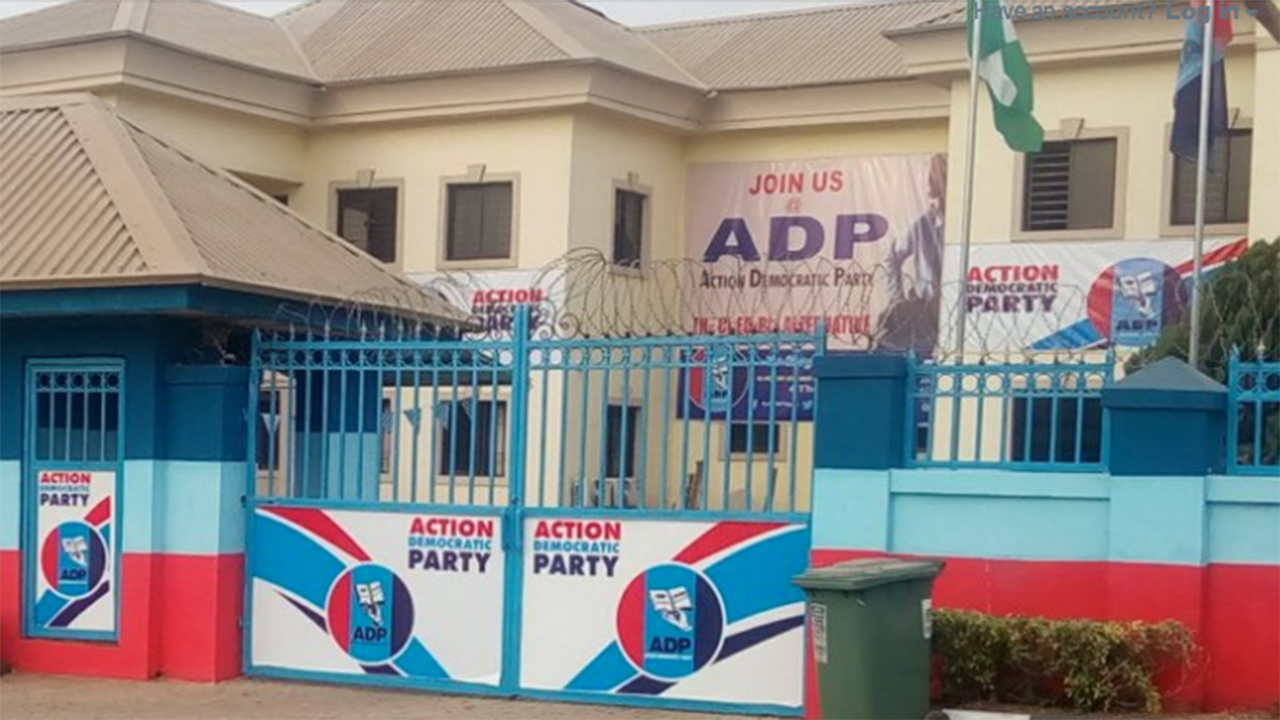
Political scientist and ex-Director General, Administrative Staff College of Nigeria (ASCON), Badagry, Prof. Adele Jinadu, in this interview with MUYIWA ADEYEMI, spoke on how political structure in Nigeria has been manipulated to satisfy selfish interest of the political elites. He also dismissed various local council reforms as part of strategy to change power dynamics at the grassroots ahead of 2027 general elections.
Is Nigeria truly operating federal system of government?
The genius of the founding fathers of the Nigerian federation was in opting for federalism, at a time when it went against the grain of popular sentiment in Africa and globally in the 1950s and 1960s, with Sir Ivor Jennings, the British constitutional historian, observing that no one would adopt a federal system if they could avoid it.
But today, federalism in its various forms or analogous form, as political devolution, in unitary systems, as in the United Kingdom or Kenya, or in regional jurisdictions, as in ECOWAS or the European Union, is enjoying a high level of popularity.
The question is not whether Nigeria is truly operating a federal system, but whether the country is more or less federal in coping with the paradox of federalism, namely the contradictions flowing out of the competing push and pull of self-rule at the subnational level and shared rule at the federal level of its ethnofederal system.
No doubt, ethnofederalism has been refurbished at critical periods of Nigeria’s political history to address the following persistent intertwined challenges that the paradox poses for the country’s national or citizenship question: “Who owns the state?” the colonially-inherited structural imbalance of the federation; the state creation issue, and the trend towards organic or centralised federalism, which the subnational level of government can find too burdensome a price to pay for staying in the federation.
But Nigerian federalism has weathered serious centrifugal twists and turns in its biography. The most serious storm was the country’s civil war from July 1967 to January 1970. Much of the current debate about federalism in Nigeria misses the point in concentrating too much on what I call the “-ism” or magic of constitutional-legal design, while paying too scant attention to the ethical and material anchors and the political culture that are vital to secure sustainably the end of government and development as public interest vocations.
This was the lacuna in the country’s 1960 and 1963 constitutions that the 1979 Constitution under Chapter II tried to remove by linking federalism more emphatically to a theory of democracy as human development. The tragedy of Nigeria is that the country renegotiated political elite consensus over federalism and democracy, under the 1979 Constitution now gravely lacks the critical and facilitative normative and the material culture to drive and sustain them as provided for under Chapter II of the 1999 Constitution.
How would you describe the provisions in the 1999 Constitution recognising local government as the third tier of government in a federal system of government?
I have always argued for the need for a capable and viable local government system, as the experimental crucible in which to forge a democratic political culture of ethics, accountability and transparency in public political affairs, without which federalism and democracy would remain fragile and wobbly in Nigeria. Local government does not need to be a third-tier of government for this to be the case. Powers and functions can be and should devolve or decentralise from the state level to the local government level. This is the logic of political devolution in unitary systems.
In federal systems, the tradition or convention, with an anchoring binding moral and cultural not necessarily legal force, has been for subnational levels of government to determine the scope and powers of local government, as in Switzerland and the United States. But there has also been a progressive extension of the logic of the home-rule notion that informs the constitutional division of powers between the federal and sub-national level governments, to the relations between subnational governments and local governments, as in Brazil, Germany, India and Mexico, where constitutional recognition is granted local governments as autonomous third-tier of government, which cannot be revoked by the federal and state governments.
In Brazil, each municipality has its own constitution or organic law. The problem of local government autonomy in Nigeria that since the introduction of ethnofederalism in the country under the 1954 Lyttleton Constitution, through the various reforms to the local government system to grant them limited autonomy, particularly under the Murtala Mohammed/Obasanjo administration and the Babangida military administration, regional and state governments have stoutly sought to put local governments under their and ironclad control.
How would you react to various reforms going on in the country, especially local council financial autonomy granted by the Supreme Court and declaring illegal caretaker committees administering local councils?
I have not read the Supreme Court judgement. But the Supreme Court cannot grant the local government autonomy. It can only interpret the law to determine the specific constitutional issue between the federal and state governments it is asked to adjudicate, although sometimes there is a thin line between interpreting and making the law. But, more importantly for those who have long argued for local government autonomy, the judgement has illustrated the impunity of the country’s public political officeholders in their attitude to the exercise of political power.
This particular matter did not have to get to the courts. It could have been solved politically, if our political officeholders embrace the spirit of the law and of federalism, and do not seek to exploit ambiguous letter of the law for their own self-seeking power grabbing end, and instead put justice and the public interest above their zero-sum, confrontational attitude to political power. This is part of a broader political culture in the country’s practice of federalism as confrontational and not cooperative federalism.
It is ironical that those now applauding judgement of the Supreme Court were those who, yesterday, committed the greatest political assault that diminished the autonomy of the local government, including the taking over and recentralisation of the traditional revenue generating powers and functions of the local government, for rent-seeking, and created local governments without following constitutionally stipulated procedures for doing so and power aggrandising ends.
It is an indication also of the low level of civic consciousness and deficit of the citizenship obligation that we have as citizens that we continue to put up with such impunity, as if we could wish it away without political action under the law.
Will you support the bill passing through legislative processes to create an independent body to conduct local council election and displace State Independent Electoral Commission (SIEC)?
The Uwais Electoral Reform Committee provided an excellent overview of the problems of SIEC and offered thoughtful and practical policy recommendations reforming them through their integration into INEC. I know there are undercurrents of muted suggestions of attempts by some public political office-seekers and some strategically-placed politicians to create a new empire for themselves at the local government level through direct intervention from the federal level ahead of 2027 to wring control of local governments from governors in their battle for supremacy at the state level to cash in at the national level. “Plus ca change plus ce’st la meme chose” (The more things change, the more they stay the same.)
Are you not concerned that Nigeria is gravitating towards unitary system of government against true federalism many are canvassing for?
Political systems are always in a flux, more so federal ones. Each system generates its own contradictions, which are in turn destabilising if not violently conflict-generating. For federal systems, such contradictions may accentuate separatist or secessionist tendencies, as they did in Nigeria before independence at the various constitutional conferences between 1950 and 1960, and after independence in 1967 at the Aburi, Ghana meeting. It is normal that some of the subunits in a federal system will raise concerns about the heavily burdensome price of federalism.
But many more federations have survived than have been dissolved because of such contradictions. What is troubling about recent trends in Nigeria’s federal system is the way in which competitive party and electoral politics has been playing out, with vicious attacks demonising and trying to destroy all-Nigerian/federal institutions. The country’s political language is over-saturated with ethno-religious hate speech so vicious and vituperative that it is weakening and loosening the buckle that holds the federation together. This is what should concern Nigerians.
Beyond theories, what are the practical solutions to many contradictions and challenges facing the country?
If the country is not to plod along as it is doing now, tired, disconsolate, and overburdened by its diversity, which rather than serving as the symbol of its unity, is now severely endangering that unity, Nigerians must speak out loudly and boldly against the deficit of transformative leadership that is leading the country down the precipice.
The professional and intellectual groups, the core of the country’s middle classes, must pull their resources together to provide an alternative voice to redeem the country and restore its dignity. It will be a long-drawn out struggle but it has to start now. It will require the following: discarding the conventional elitist view of democratic politics for a more inclusive one, which expresses people’s power, to challenge arbitrariness and impunity of Nigeria’s public authorities; reform Nigeria’s legal system and legal education away from excessive formalism and elitist bias, in order to engender a public interest and activist legal culture, providing legal anchor for social justice as state policy, making the law catalyst of social change.
The public political authorities should be made accountable for their constitutional obligation under Chapter II of the 1999 Constitution; reform of the country’s party system, which is the epicentre of a vast centralised oligarchic spoils system, which reinforces – ethnic mutual distrust and fear of domination; reconstitution of local governments as a constitutionally entrenched third tier of government in its own right, with requisite fiscal and administrative independence; strengthening Code of Conduct Bureau, INEC, Central Bank of Nigeria (CBN), Human Rights Commission, ICPC and the EFCC, with greater independence; and pursuing mandate protection as the sacred obligation of every citizen, as captured by the aphorism, “the price liberty is eternal vigilance.”






